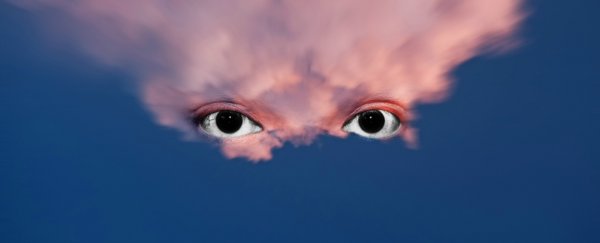New research has found that hallucinations are far more common among the general population than most people realise - and they aren't limited to disorders commonly associated with psychosis, such as schizophrenia or borderline personality disorder.
A study looking at more than 7,400 people in the UK found that 4.3 percent of participants had experienced either visual or auditory hallucinations in the past year - this included people with and without mental health issues, and showed that the phenomenon wasn't limited to those with psychosis.
"There is a general idea in psychiatry that hallucinations are a feature of psychosis," lead researcher Ian Kelleher from the Royal College of Surgeons in Ireland told Léa Surugue at the International Business Times.
"But when we looked at a whole range of mental health diseases we found that hallucinations are symptoms that occur in a wide range of mental health disorders such as depression or anxiety."
Generally, when we talk about mental health issues, there's a divide between the psychotic disorders, such as borderline personality disorder and schizophrenia, and non-psychotic disorders, including depression and anxiety.
For this study, the researchers used borderline personality disorder as an example of a psychotic disorder.
There's plenty of unnecessary stigma surrounding all of those conditions, but in particular, people with psychotic disorders are usually considered unique in that they see and hear things that aren't there.
But the new study suggests that this divide might not actually exist.
The team looked at data from the 2007 Adult Psychiatric Morbidity survey, which included surveys over the space of a year on the mental health of 7,403 people in England aged over 16.
As you'd expect, many of these participants had been diagnosed with a mental health condition - in England, it's estimated that one in six people suffer from mental health problems in any given week.
But the team wanted to narrow down whether hallucinations were any more common among people with psychotic disorders compared to those with non-psychotic ones.
To do this, the researchers looked at how many people with borderline personality disorder (which is associated with psychosis) reported seeing or hearing things that other people couldn't in the past year, compared with the number of participants with non-psychotic depression or anxiety.
The results showed that hallucinations weren't significantly more prevalent in individuals with borderline personality disorder (13.7 percent) than those with a non-psychotic mental disorder (12.6 percent).
Not only that, but more than 4 percent of all respondents reported hearing or seeing things that others couldn't - including those who'd never been diagnosed with mental health issues.
Based on the results, the team suggests that hallucinations aren't exclusively symptoms of psychosis, and shouldn't be stigmatised.
"Hallucinations are more common than people realise. They can be frightening experiences, and few people openly talk about it," Kelleher told Surugue.
"Our research is valuable because it can show them they are not alone and that having these symptoms is not necessarily associated with having a mental health disorder. It breaks the taboo."
But this is just one study and it has its limitations - for starters, the team relied on participants to self-report whether or not they'd experienced hallucinations, which isn't the most accurate technique.
And although it was a decent sample size, the researchers only looked at people in England, which is not a diverse enough demographic to draw any far-reaching conclusions about hallucinations in general.
But the findings echo the results of a much larger study published in 2015, which looked at data on more than 31,000 people from 19 countries.
Similar to these latest results, that paper found that around 5 percent of the general population reported experiencing hallucinations, whether or not they were diagnosed with a mental illness.
"We used to think that only people with psychosis heard voices or had delusions, but now we know that otherwise healthy, high-functioning people also report these experiences," said lead researcher John McGrath, from the Queensland Brain Institute in Australia, when the study came out.
As research into hallucinations continue, it's becoming apparent that many of the symptoms we once associated with mental health disorders are actually more common than we once thought.
In fact, a separate study that came out last week showed that people who go through life without experiencing any mental health problems are more unusual than those who do.
By further investigating who does and doesn't experience visual or auditory hallucinations and how they occur, researchers will hopefully get a better idea of who's at risk of developing serious mental health conditions in future.
The research has been published in the British Journal of Psychiatry.
